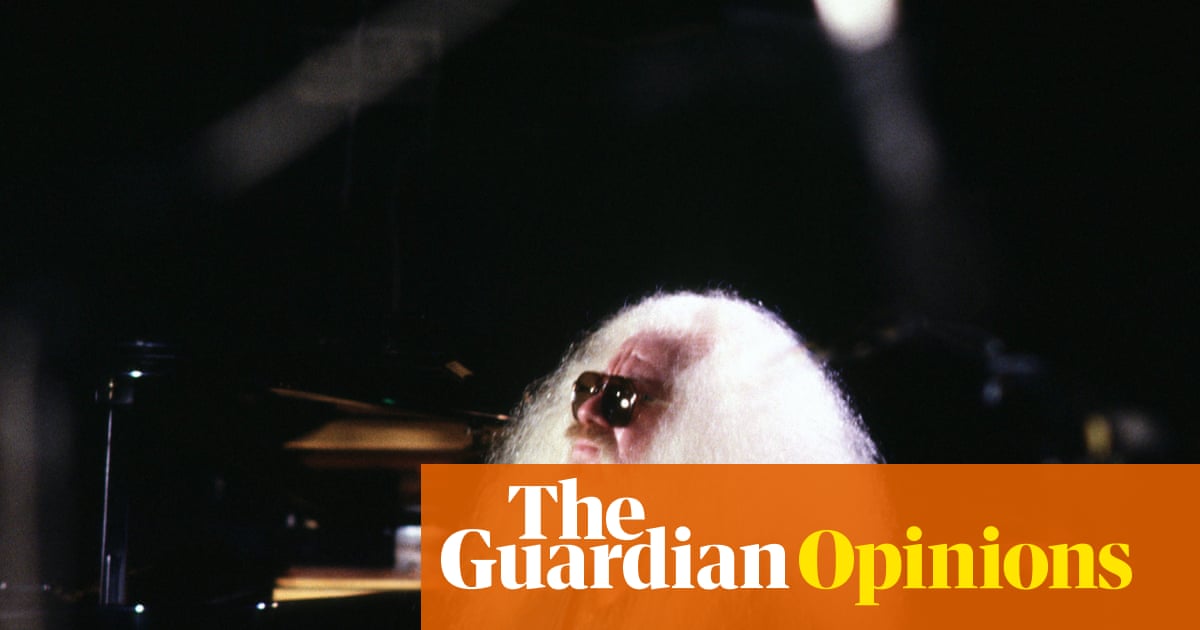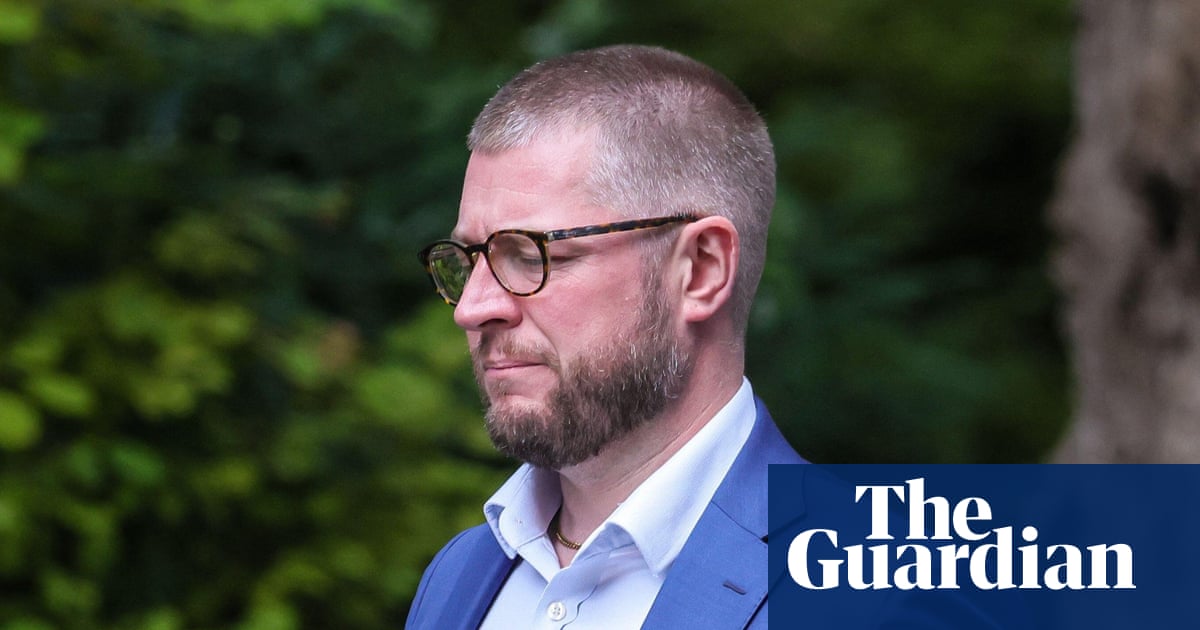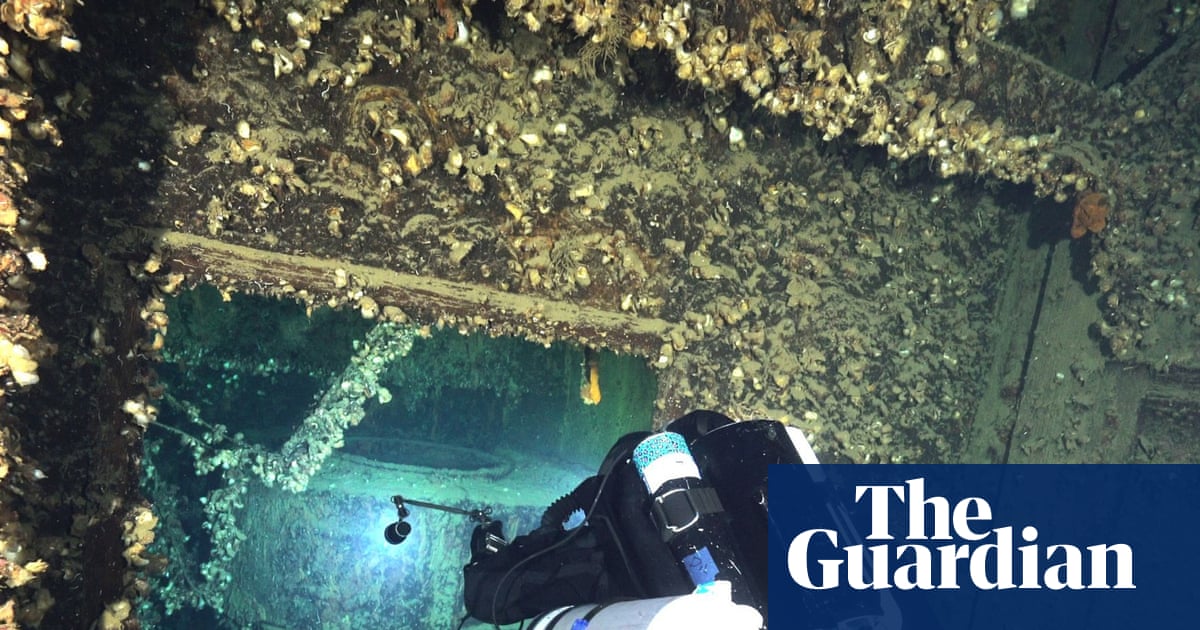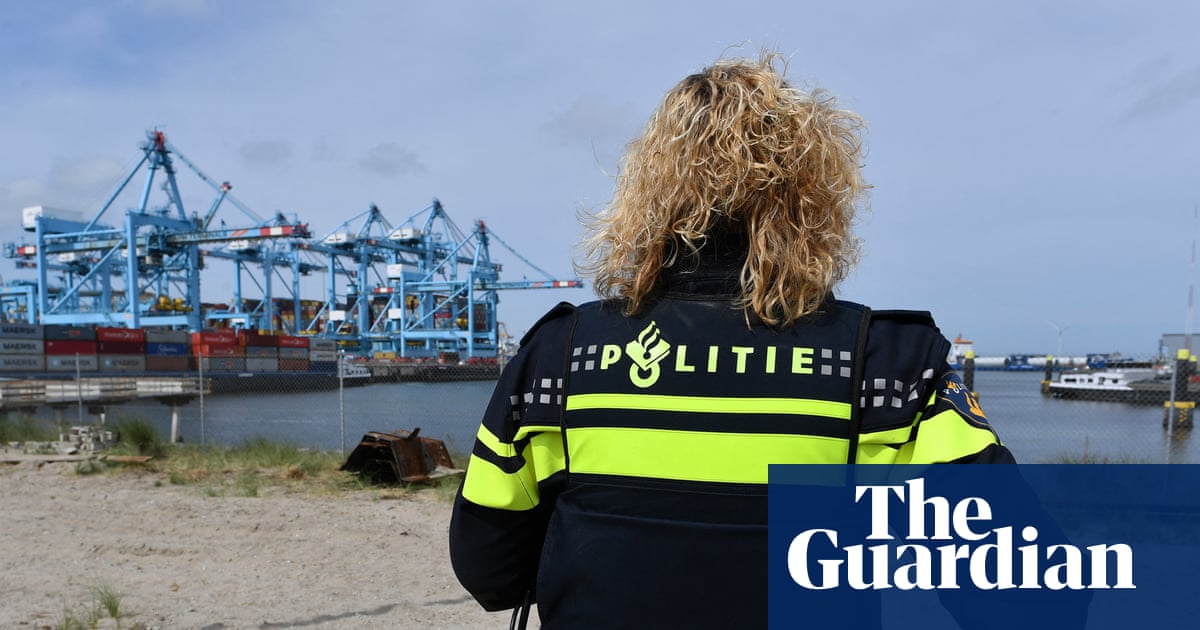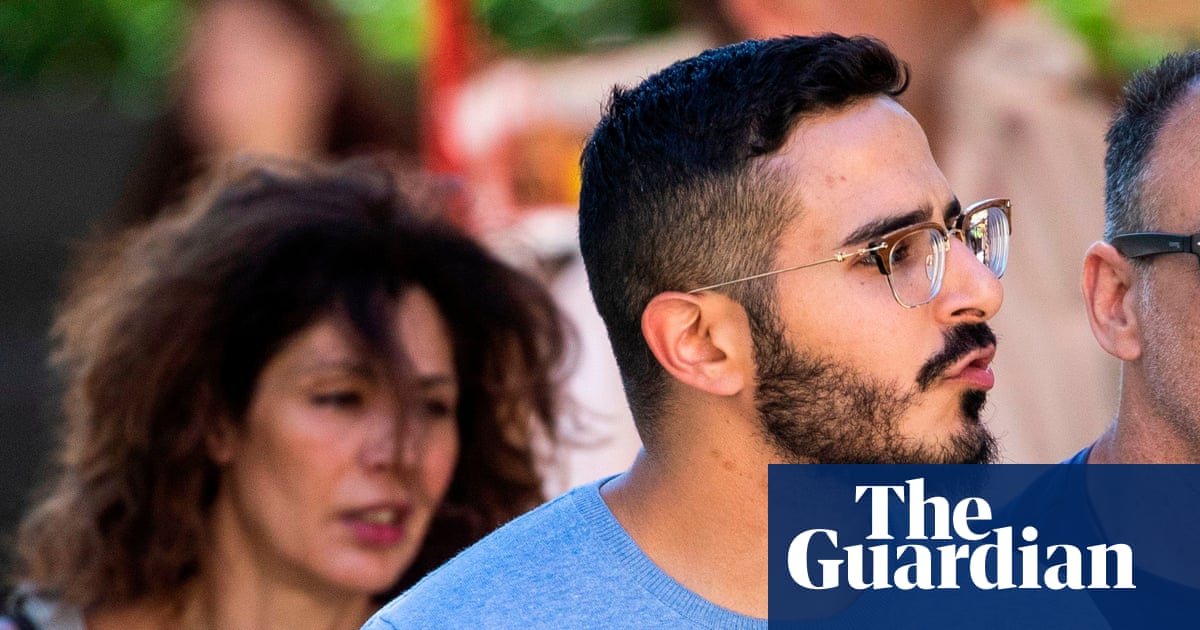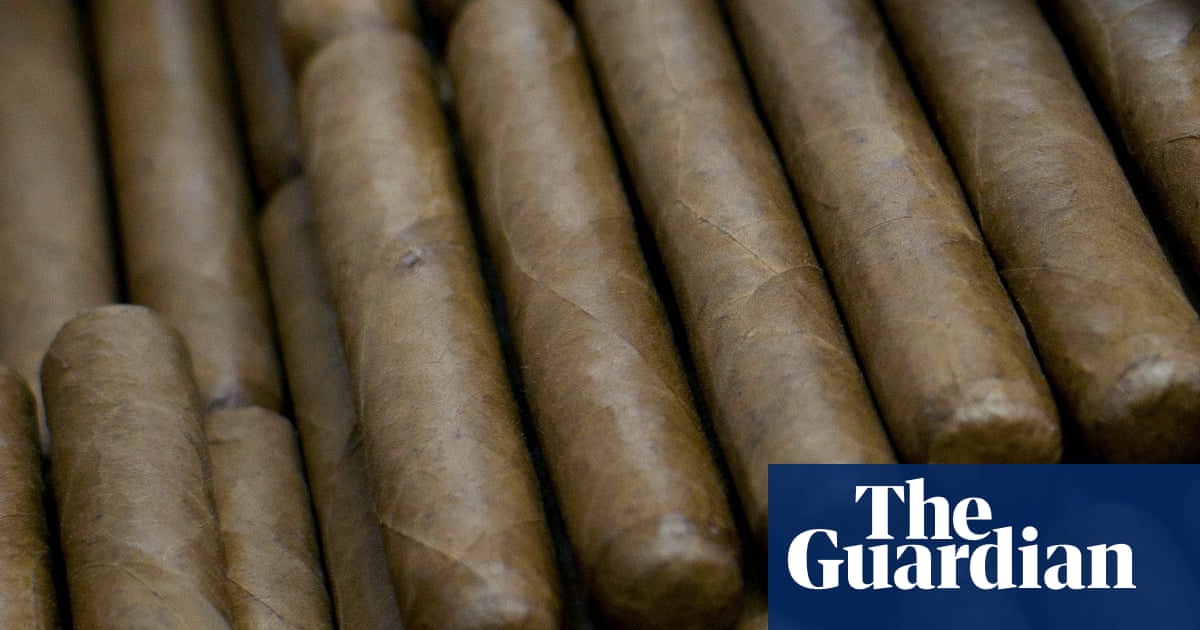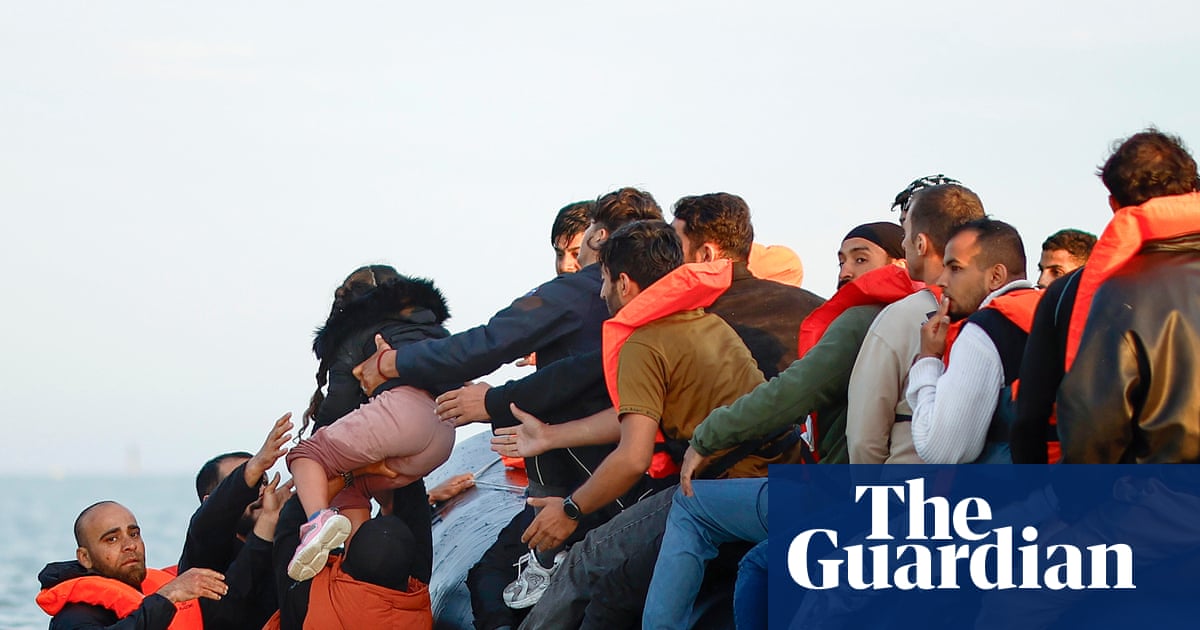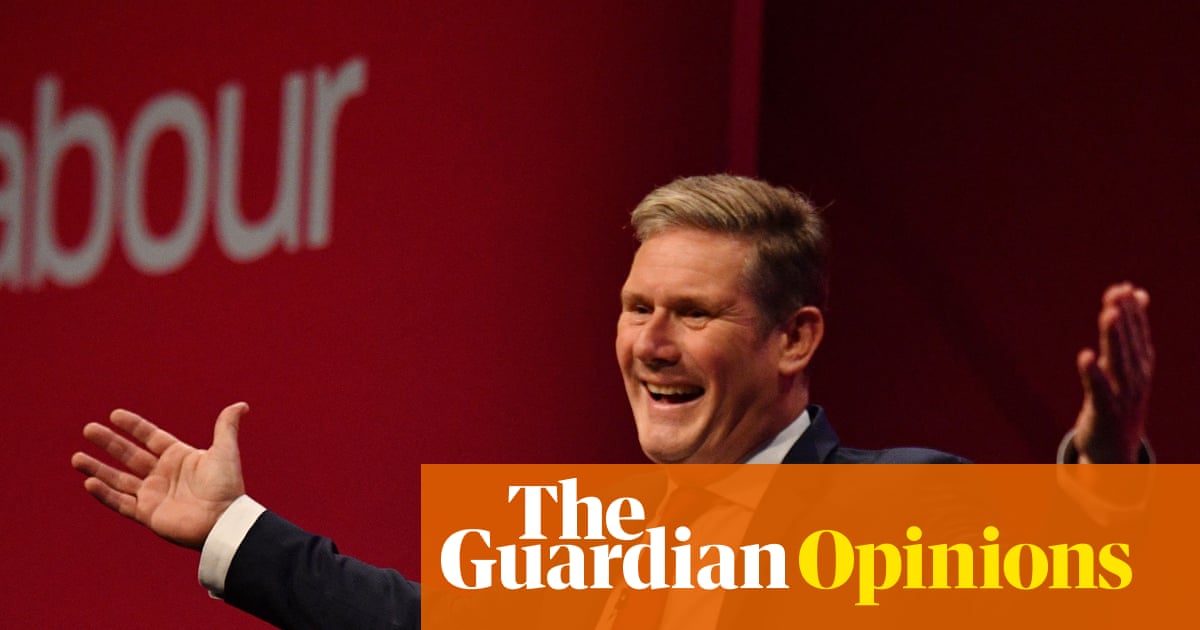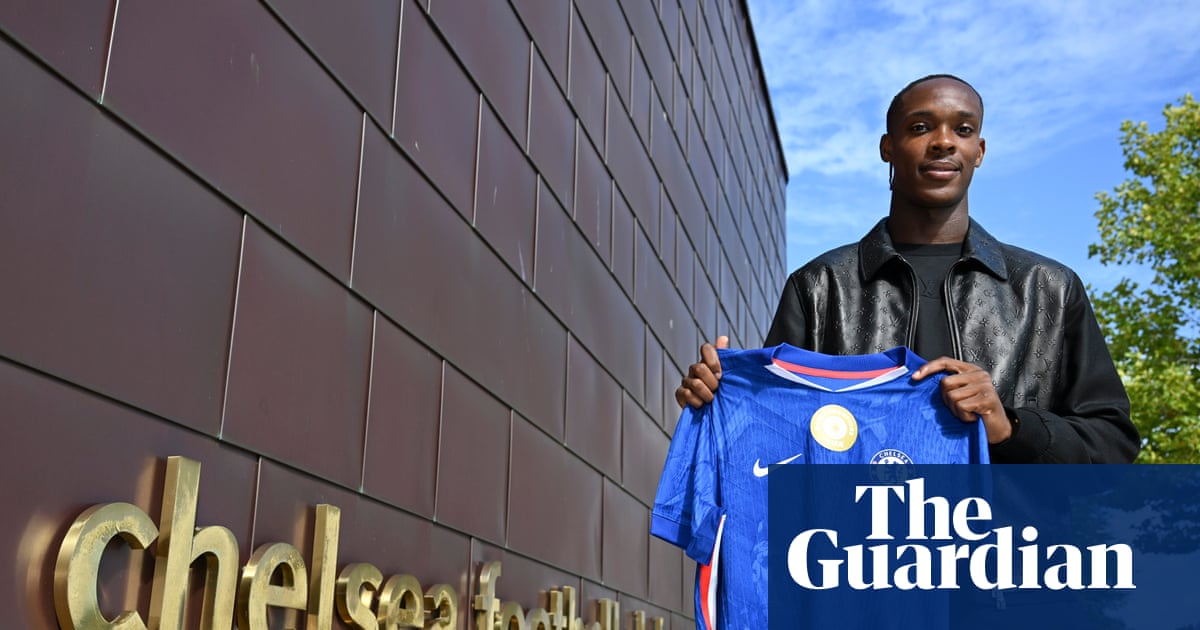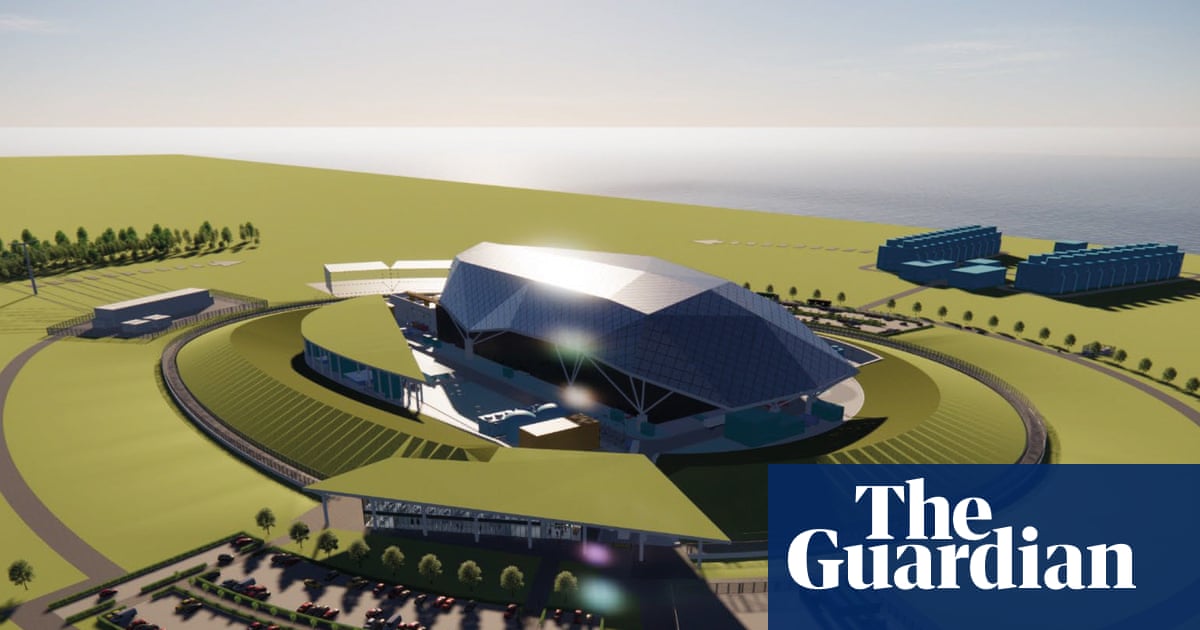A UK plan to send refused asylum seekers to “return hubs” in third countries shows post-Brexit Britain is “in a very dark place”, Albania’s prime minister has said.
In his first interview with the international media since leading his socialist party to a historic fourth term in office, Edi Rama said the idea of the UK wanting to “look for places to dump immigrants” would have been inconceivable a decade ago.
But it was in keeping with the shift in public discourse in Britain since Brexit, in which the “totally unacceptable, totally ridiculous, totally shameful” had become normalised, he said.
Announced last month by Keir Starmer during a visit to the Balkan state, the “return hubs” scheme would involve centres in a third country processing the claims of people refused asylum who have exhausted legal pathways in the UK.
“It’s one of those things that 10 years ago would simply not have not been imaginable … that Britain would look for places to dump immigrants,” Rama said from Tirana, the Albanian capital.
“The fact that today it’s not just imaginable, it’s happening, is not because of Keir Starmer or [Rishi] Sunak doing something outrageous; it’s because of the country being in a very dark place.”
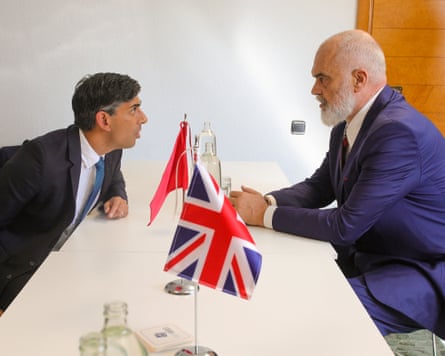
Rama, who is renowned for his outspoken and contrarian views, voiced dismay at the level of public discourse in the UK. As a committed anglophile, he said, it was hard to take in.
“Eighty per cent of the things that are said, or are written, or are accepted as a normal part of the discourse in today’s Britain are things that [before Brexit] would have been totally unacceptable, totally ridiculous, totally shameful,” he said.
Under former Tory governments, relations between the UK and Albania became increasingly strained, overshadowed by boat crossings and accusations of illegal Albanian immigrants “invading” British shores.
Starmer’s visit in May – the first ever by a British prime minister – – was aimed at putting bilateral relations on a new footing. While in Tirana, the Labour leader said talks were under way “with a number of countries” to set up the hubs. But, in a move seen as a gentle rebuke to his guest, Rama said in a joint press conference that Albania would not be participating in the scheme.
Seeking to put the record straight in the interview, Rama said that Starmer, a “very decent [and] a delightful person”, had neither made the request publicly nor been the first British leader to privately broach the subject. Rama said his response had always been the same: “I have been clear about this since Boris Johnson asked me and Rishi asked me … I’ve always said no.”
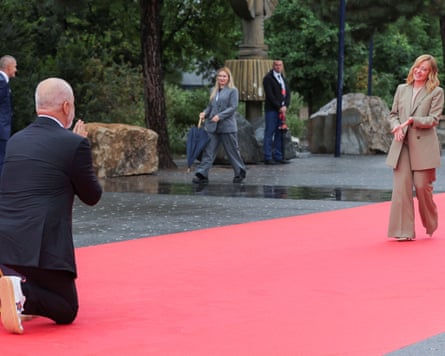
That Albania had previously agreed to a similar scheme with Italy’s prime minister, Giorgia Meloni, was different because of the “very special relationship” the two countries had. That deal, which envisaged intercepting people at sea and taking most of them not to Italy but to a reception centre in Albania for their asylum claims to be processed, has so far been obstructed by legal objections.
From the day Albania’s brutal Stalinist regime collapsed in 1991, Italy had stood by his country, Rama said. As a result his compatriots had “a weak spot” for Rome.
“Practically we are one country made of two independent countries … Italy has been there for us in every dark moment and difficult situation since the day we got out of the hell of [being] the North Korea of Europe,” he added. “[We] have a weak spot for Italy, so when Italy asks us for something we say yes, full stop.”
Rama’s stance coincides with a newfound confidence as the small country, among Europe’s poorest states, makes once-unthinkable strides towards joining the EU. With a dramatic change of pace and tone that he attributes to the new “geopolitically driven spirit” of European policymakers since Russia’s full-scale invasion of Ukraine, accession negotiations have accelerated as Brussels finally seeks to embrace the western Balkans. The region has long been viewed by Moscow as falling into Russia’s sphere of influence.
after newsletter promotion
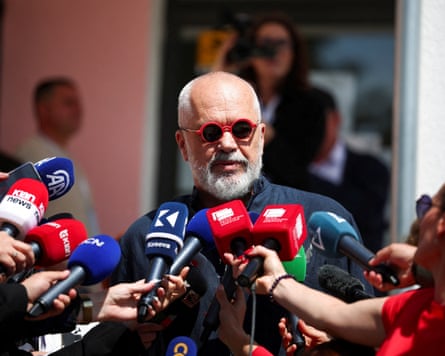
Rama, who turns 60 in July, ran his election campaign on the promise he would push ahead with pursuing accession to the EU. He now believes negotiations will be wrapped up by 2027 and “within 2030 we’ll be an EU member”. Albania, which joined Nato in 2009, has been an accession candidate for more than a decade.
“The whole approach to the process has dramatically changed,” he said. “Now they [the EU] are very eager to go forward … With the Russian aggression everything changed, so somehow Vladimir Putin also did this, he made Europe much more interested in unifying.”.
He sees a similar effect on the EU from the new occupant of the White House and is “100% convinced that Donald Trump’s election is a good thing for Europe”. Rama said Trump’s victory jolted Europe out of its languor and had brought “an unsettling spirit” that the world needed.
“I think that when Trump says God saved him because he had a plan for America, I think he says only half the truth. God saved him because he had a plan for Europe too, to wake Europe up,” he said.

Later this year, the Albanian painter turned prime minister will launch a “thank you” tour of diaspora communities who, in a first, were able to vote in last month’s election, helping him secure a landslide victory. More than 500,000 ethnic Albanians are thought to live in Greece alone. Rama’s hope is that he can lure them back “because now our salaries are very close to [those in] Greece and it’s home”.
But the socialist party leader, at 6ft 7in (2.01 metres), a basketball player in his youth, also has his critics. Charges of corruption in Albanian society are widespread. So, too, are accusations of creeping authoritarianism – Rama will be the longest-serving leader since Enver Hoxha, the country’s former brutal dictator – though the allegations are labelled farcical by admirers and mandarins in Brussels.
One former EU minister said: “Edi is larger than life. His problem is that he is too big for his country and I am not referring to his height.”
If Albania succeeded in its membership bid, Rama said it would be “the right and most wonderful moment to pass the torch”. It would be a personal achievement but also “help Europe be less boring and more sunny”.

.png) 2 months ago
53
2 months ago
53
